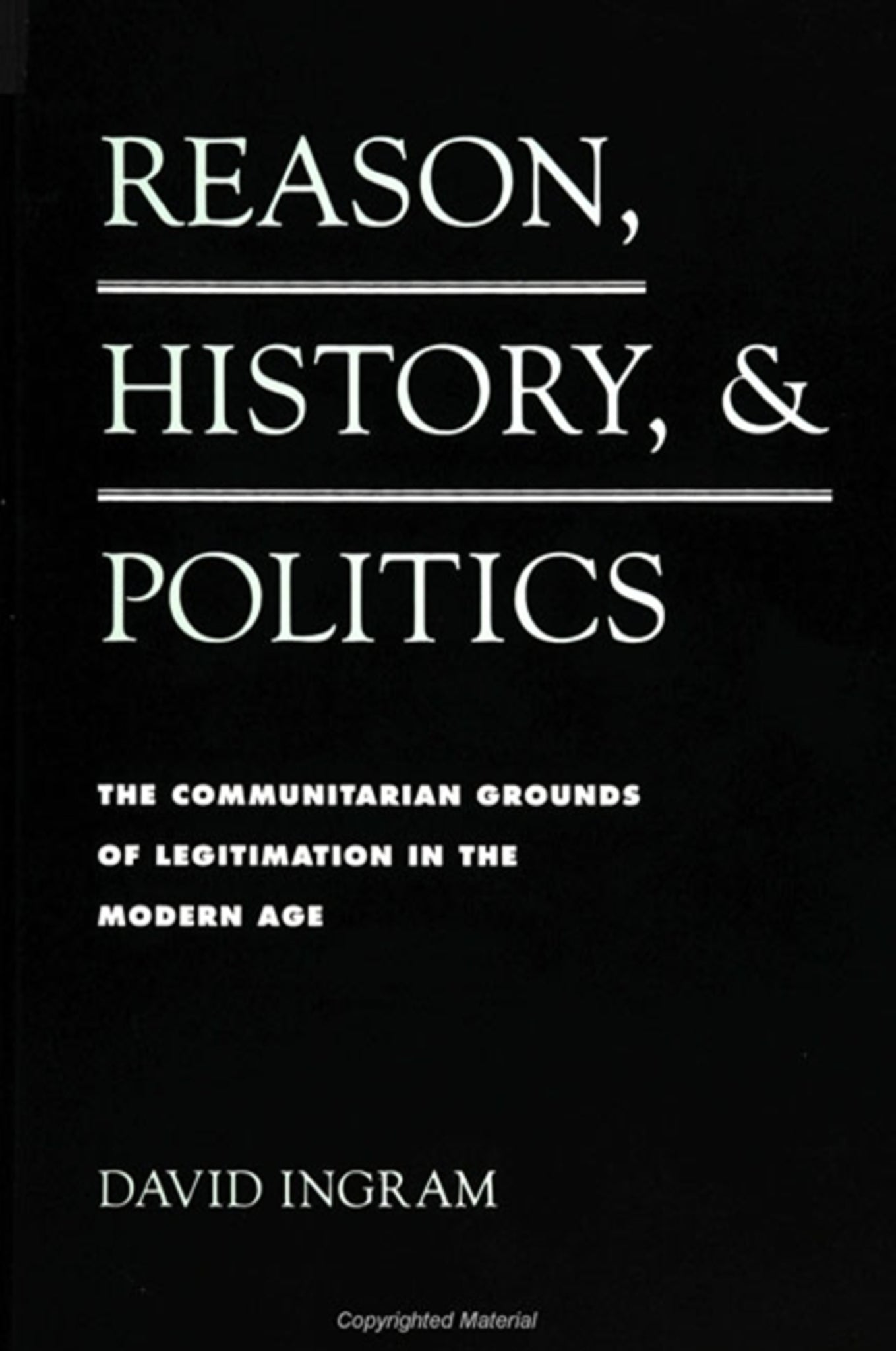We're sorry. An error has occurred
Please cancel or retry.
Reason, History, and Politics

Some error occured while loading the Quick View. Please close the Quick View and try reloading the page.
Couldn't load pickup availability
- Format:
-
30 March 1995

The author shows that conceptions of rationality in current theories of science and law can account for neither the legitimacy of paradigm shifts nor the communitarian integrity internal to paradigms generally. He proposes an alternative conception of rationality that does.
Reason, History, and Politics shows that certain conceptions of rationality in current theories of science, technology, and law can account for neither the legitimacy of paradigm shifts nor the communitarian integrity of rational decision and learning internal to paradigms generally. Ingram proposes an alternative conception of reality that does.
Drawing on a rich literature that encompasses classical German Idealism, pragmatism, poststructuralism, and hermeneutics, Ingram shows how a specific model of art criticism and aesthetic judgment illuminates the kind of discursive rationality found in all domains of rational undertaking. The book synthesizes debates in law, political science, philosophy of science and history, and social philosophy, and covers Anglo-American, French, and German schools of philosophy, discussing topics such as critical legal studies, the logic of scientific discovery and explanation, and subjectivity, hegemony, and totalitarianism.


"This book has tremendous range, exemplified by the fact that the traditions presently culminating in Habermas, on the one hand, and Rawls, on the other, are brought together to provide a fully rounded discussion of the Enlightenment. Ingram's work in action theory and theory of historical causation and explanation is both synthetic and original. And as a guide through the debate around 'communitarianism,' it is remarkably clear and succinct. Any intellectually oriented press would be fortunate to publish this book. I very much look forward to taking part in the discussions that will undoubtedly surround it." — Bill Martin, DePaul University
Acknowledgments
Introduction
Part I
1. Reason and Liberal Theory: A Communitarian Critique
2. Science and Technology as Practical Reason
Part II
3. Anglo-American Communitarianism and the Dilemmas of Social Critique
4. French Communitarianism and the Subjugation of Identity
Part III
5. Discourse Ethics and Democratic Legitimation
6. Discourse Ethics and Adjudication
Part IV
7. A Postmodern Legitimation of Community and Judgment
8. The Legitimacy of the Modern Age: Toward a Metaphorology of Revolution, Myth, and Progress in Science and Politics
Notes
Bibliography
Indexes



